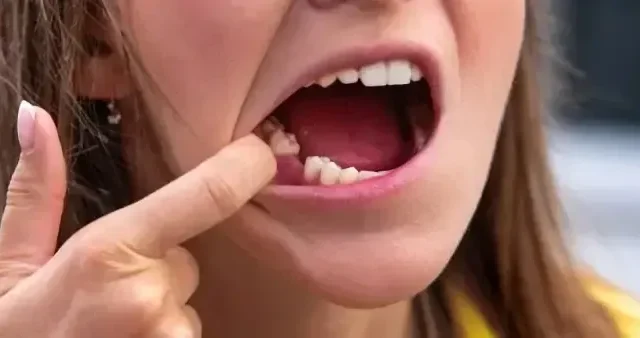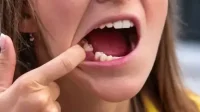Japanese researchers have discovered a treatment that can speed up tooth development. Is there a solution to the problem of dental agenesis soon?
Losing a tooth is never an easy experience. The child is like an adult. In addition to pain, which can sometimes be blinding, it is necessary to wait until the said tooth grows back. At this last point, Japanese researchers made a very interesting discovery. It would be possible to stimulate growth with a monoclonal antibody. This would be ideal for people with dental agenesis.
What is dental agenesis?
Dental agenesis refers to the lack of permanent tooth formation. When it comes to wisdom teeth, this is not a problem, but if they affect the incisors or molars, then it is much more troublesome, on the one hand, for chewing, and on the other hand, for aesthetics. The simplest solution currently available and the most common are dental implants. But in a few years it might be easier. Treatment may one day make it possible to accelerate the growth of teeth.
How does this treatment work?
Researchers at Kyoto University and Fukui University in Japan found that removing the USAG-1 gene (gene-1 associated with uterine sensitization) causes tooth growth. In his study, published in the journal Science Advances on February 12, 2021, lead author Katsu Takahashi explains how his team was able to identify the molecules responsible for tooth development.
According to these researchers, “the morphogenesis of each tooth depends on the interaction of several molecules, including BMP (bone morphogenetic protein) and Wnt signaling.”In addition, BMP and Wnt are involved in modulating the growth of multiple organs and tissues in early human development. For this reason, drugs that affect BMP and Wnt are often avoided because they can have side effects throughout the body.
Thanks to the work of this team, we finally have a definitive explanation for the benefits of monoclonal antibodies—those proteins that mimic the immune system to fight pathogens—on tooth growth.
When can we use it?
This discovery may offer a very promising way to combat dental agenesis, which today can only be treated with implants or other artificial solutions. Japanese researchers will soon test these antibodies in pigs and dogs before, who knows, testing them in humans soon.


